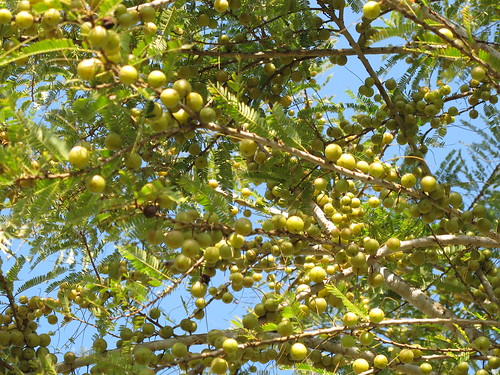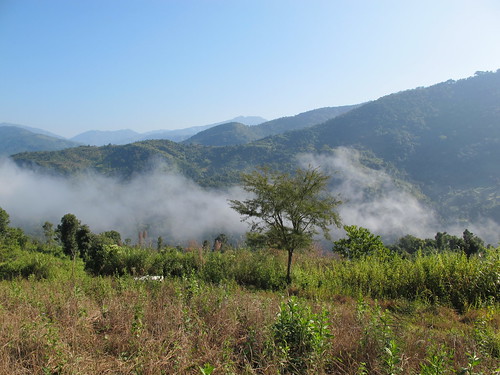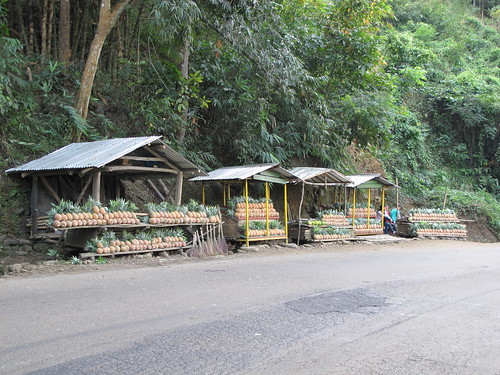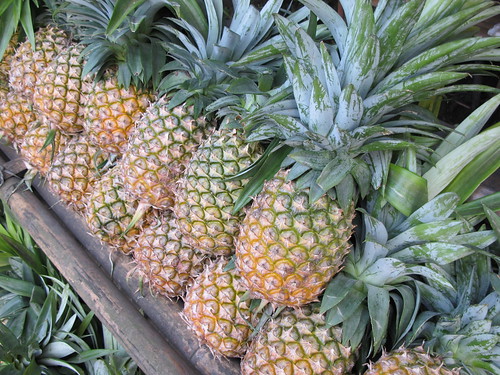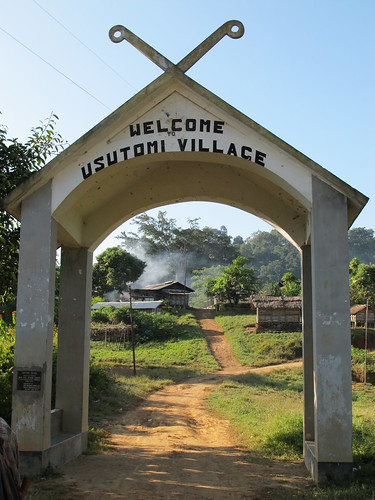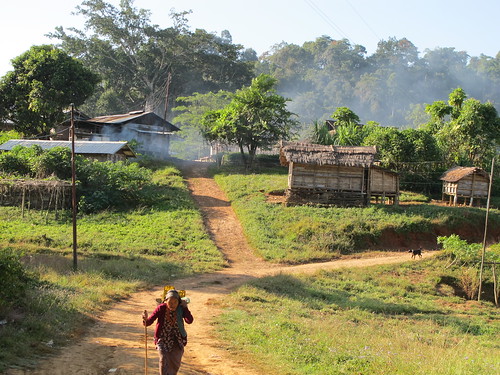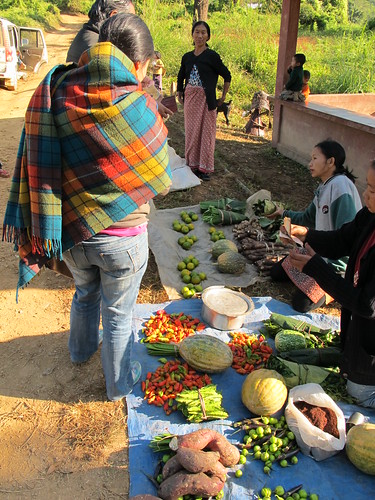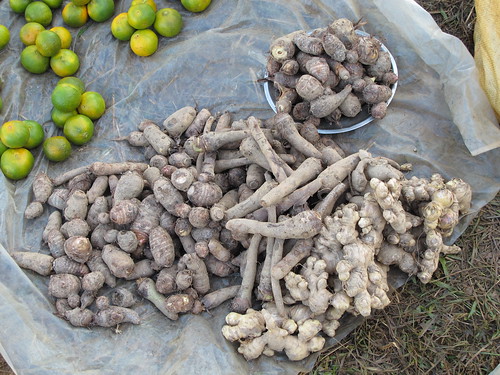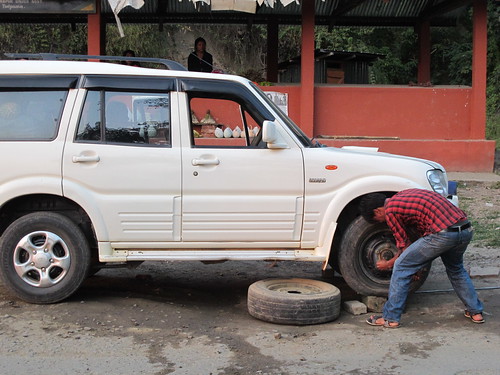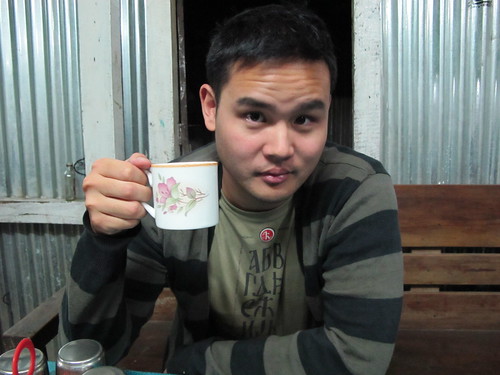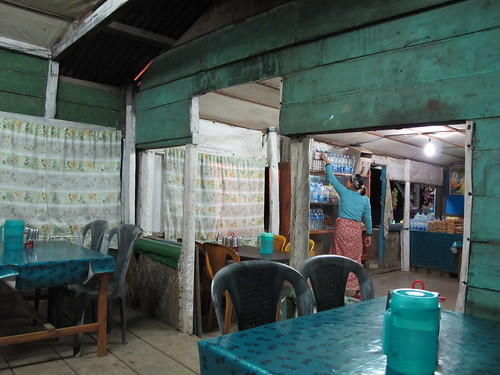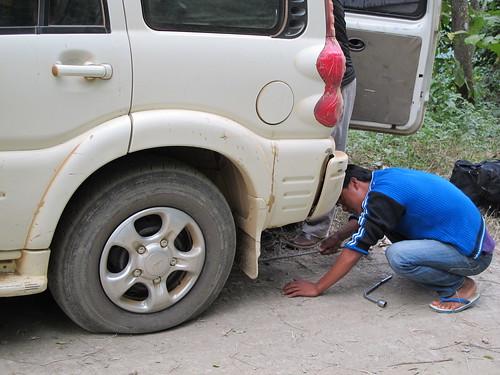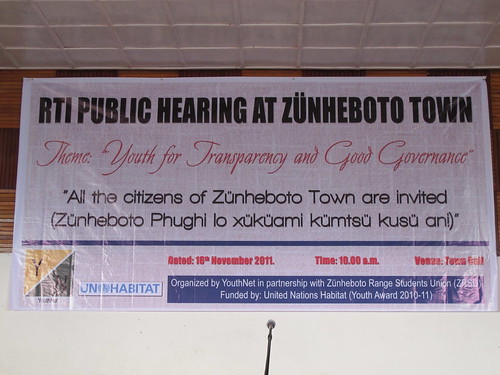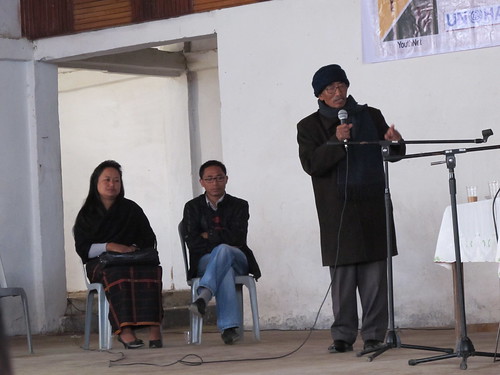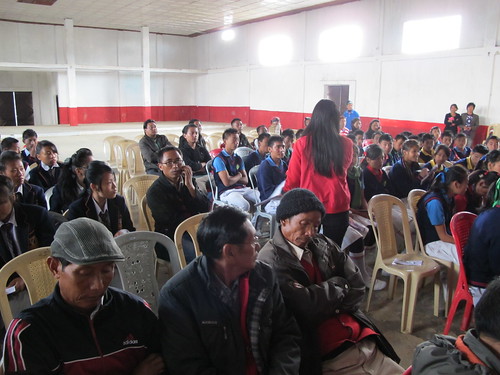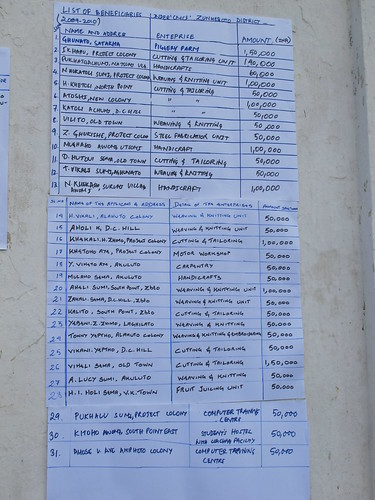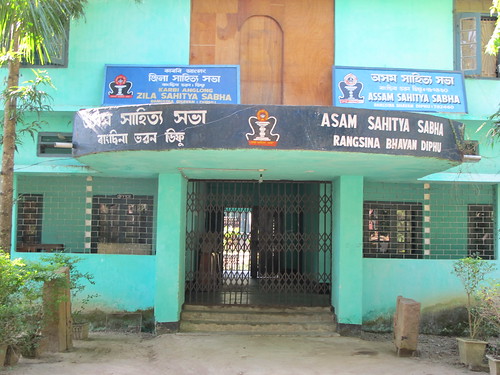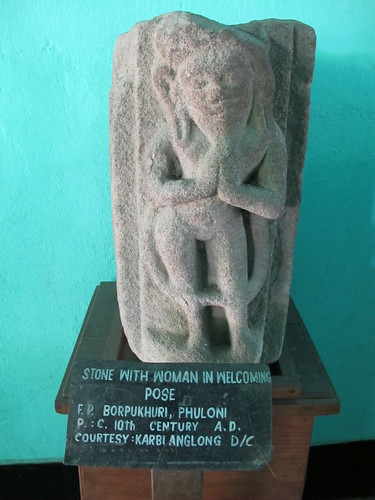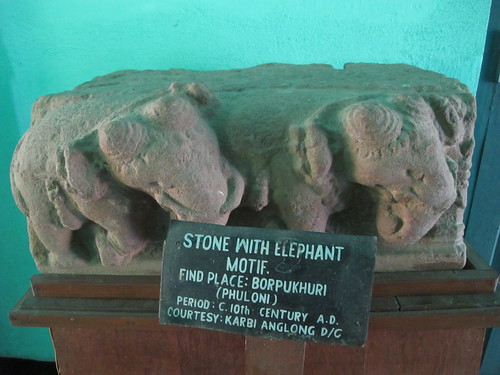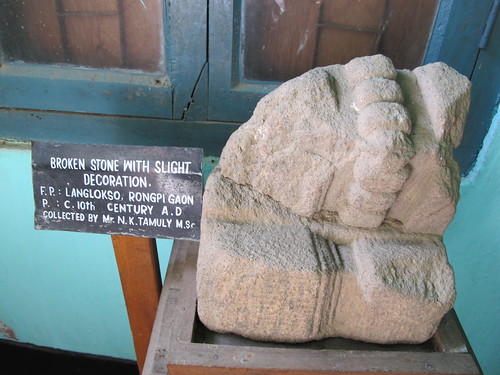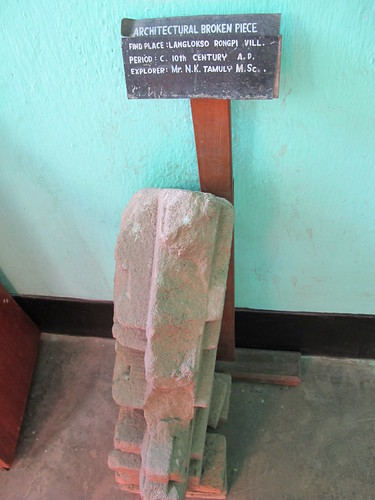(This post was meant to have come out yesterday, but I was having trouble uploading the photos.)
Yesterday I arrived in Kohima. I wasn't originally planning on being here this year during the annual Hornbill Festival (which runs from 1 Dec - 7 Dec at the Kisama Heritage Village just out of town). The traffic in town is terrible and getting to the festival site isn't terribly easy without private transport. And frankly - this coming from someone who is genuinely interested in the different cultures here - after a day or two of performances, all the dances start looking the same (the commentary isn't always that illuminating). Last year, I ended up taking photos of foreign tourists ogling these 'naked' Nagas like they were animals at a zoo (see here). That said, I am looking forward to seeing people compete in the Naga pork eating competition and Naga chilli competitions this year.
But I digress. This year I decided to come for a number of reasons, one important reason being that my friend Canato Jimomi is having his first public exhibition of his artwork at the Dream Cafe. Sadly though, I missed the grand opening at 10am on 29 Nov because I was still in Dimapur. The artist himself refused to let me take a photo of him at the cafe but his photo is in the Nagaland Post article here.
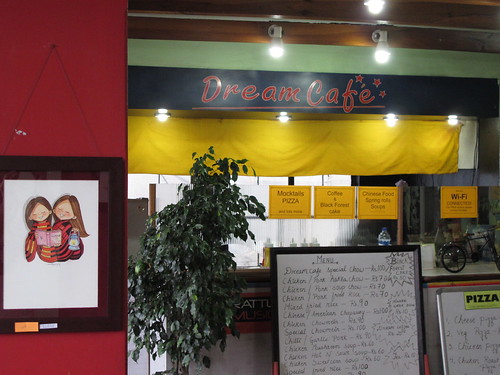
His work typically depicts children and is characterised by a blend of traditional Naga and modern imagery, with a few blends of traditional and Christian thrown in for Christmas (like the little shepherd boy in the photo below and the three Anghs / Three Wise Men here).
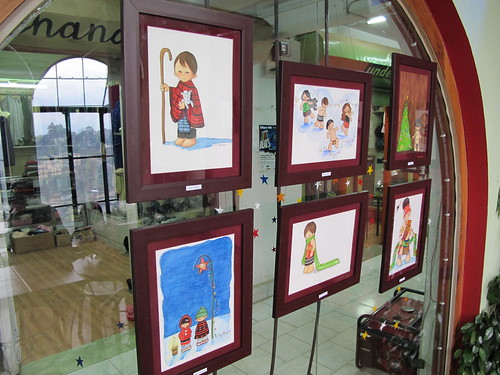
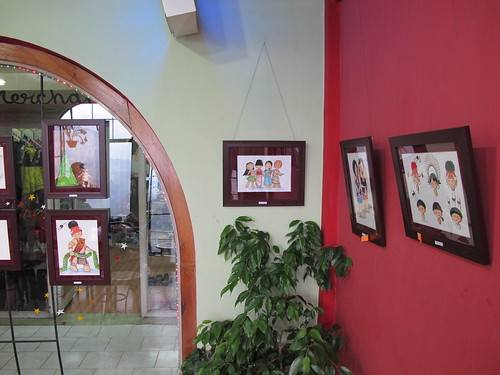
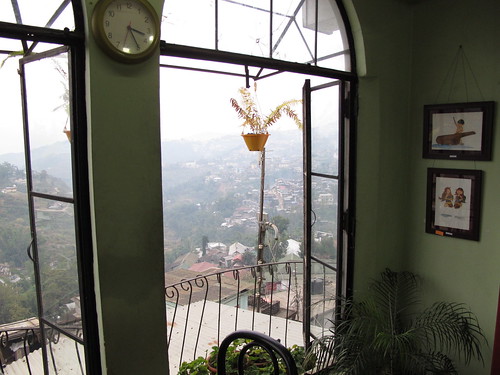
You can see more of Canato's work at http://canajimo.blogspot.com/
(Although given the internet situation in Zunheboto, don't count on regular updates while he's there.)
If you're in Kohima for the Hornbill Festival this year, Canato's also got a stall at Kisama where he'll be selling some of his work, including T-shirts, bookmarks and cards. And if you're visiting the War Cemetery, drop in at the Dream Cafe across the road - some of the artwork is still for sale.
Also, the cafe itself has a lovely view (see below). And wifi! Just be prepared for slow service.
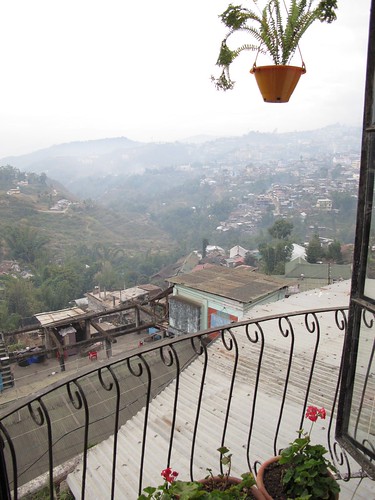
Congrats again Cana!
Yesterday I arrived in Kohima. I wasn't originally planning on being here this year during the annual Hornbill Festival (which runs from 1 Dec - 7 Dec at the Kisama Heritage Village just out of town). The traffic in town is terrible and getting to the festival site isn't terribly easy without private transport. And frankly - this coming from someone who is genuinely interested in the different cultures here - after a day or two of performances, all the dances start looking the same (the commentary isn't always that illuminating). Last year, I ended up taking photos of foreign tourists ogling these 'naked' Nagas like they were animals at a zoo (see here). That said, I am looking forward to seeing people compete in the Naga pork eating competition and Naga chilli competitions this year.
But I digress. This year I decided to come for a number of reasons, one important reason being that my friend Canato Jimomi is having his first public exhibition of his artwork at the Dream Cafe. Sadly though, I missed the grand opening at 10am on 29 Nov because I was still in Dimapur. The artist himself refused to let me take a photo of him at the cafe but his photo is in the Nagaland Post article here.

His work typically depicts children and is characterised by a blend of traditional Naga and modern imagery, with a few blends of traditional and Christian thrown in for Christmas (like the little shepherd boy in the photo below and the three Anghs / Three Wise Men here).



You can see more of Canato's work at http://canajimo.blogspot.com/
(Although given the internet situation in Zunheboto, don't count on regular updates while he's there.)
If you're in Kohima for the Hornbill Festival this year, Canato's also got a stall at Kisama where he'll be selling some of his work, including T-shirts, bookmarks and cards. And if you're visiting the War Cemetery, drop in at the Dream Cafe across the road - some of the artwork is still for sale.
Also, the cafe itself has a lovely view (see below). And wifi! Just be prepared for slow service.

Congrats again Cana!
The 'Oodles of Doodles' exhibition runs from 29 Nov 2011 to 7 Dec 2011 at Dream Cafe, next to the Kohima War Cemetery. The cafe is open from 10am to 5pm.
